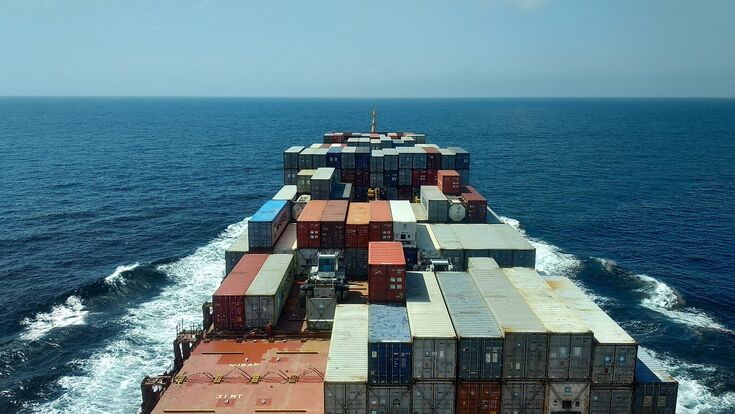Plastic Waste : European Plastic Manufacturers sound the Alarm Bell on Supply Chain Disruption

A europewide price explosion for plastics is putting the predominantly medium-sized processors of plastic products under massive pressure, the German Plastics Processing Industry Association (GKV) warns. The top organization of the German plastics processing industry describes the current situation as follows: "A lack of plastic deliveries has already led to restrictions in production and delivery capacity. All production areas and all types of plastics are affected, starting with standard plastics such as PP, PE and PVC, through engineering plastics such as ABS, PC and PA, to high-performance plastics such as PVDF and PTFE.
According to GKV, even under economic pressure, manufacturers of plastic products are working persistently to minimize the resulting risks for their customers. However, it is not only the price development that poses a major challenge to the companies, there is also simply a lack of quantities. Desired raw materials, which would be necessary due to the renewed increase in demand, are also not available to the same extent, thus dampening the return to the growth path of the industry.
Dramatic for Polystyrene and EPS.
For polystyrene (PS) and expanded polystyrene (EPS), the situation is just as dramatic: prices rose by 30 percent in March alone, and for S-PVC there was a price increase of 61 percent over the last ten months. For PUR, he said, prices have risen by 50 percent in the last six months. Technical plastics were also affected by strong price increases - the Plastixx TT price index rose by over ten percent in February alone compared to the previous month. Triple-digit surcharges are expected, especially for PA 6 and PA 6.6, which are important materials for the automotive and electrical industries.
According to the SHI, "ABS, a raw material important for housings of electrical appliances and medical equipment, has become 35 percent more expensive in the last six months. The situation is similar for high-performance plastics such as PVDF and PTFE.
Surcharges for Petrochemicals.
The petrochemical feedstocks for plastics production had also become more expensive, although in some cases significantly less so than the plastics made from them. For example, the cost of ethylene, the starting material for polyethylene, rose by 17 percent in the first quarter. For propylene, the starting material for polypropylene, the price increase is 21 percent. The surcharges on polyolefins are in some cases nominally more than three times the price increase of the precursors. Styrene, an important starting material for ABS and polystyrene/EPS, increased in price by 48 percent in March alone."
Chaotic Freight Business.
According to GKV, this was compounded in part by chaotic situations in the freight business. The reason for this is the renewed surge in demand following the collapse in global trade at the start of the Covid 19 pandemic in Q4 2020, coupled with a shortage of supply On the Asia-Europe route, this has caused container prices to rise by more than 400 percent since the end of 2020. That alone also made plastics more expensive by an average of €200/ton. Recently, however, the situation seems to have stabilized. Thus, at least in the area of freight costs, there can be hope for an easing of the situation in the medium term. However, there is still a lack of cargo space on passenger planes.
Switch to Recycled Materials not always Feasible.
In this situation, switching to recycled materials is only possible to a limited extent. "For many applications, legal safety regulations, technical hurdles and high quality requirements are currently preventing the wider use of recyclates," says the GKV, adding that in many cases recyclates are not yet available in sufficient quantities of consistent quality. Where recyclates are established, prices have risen significantly in parallel with virgin material - and that with declining availability.
The reasons for the difficult situation of plastics processors are manifold, the GKV makes clear. The Covid 19 pandemic has led to an imbalance in demand and supply of plastic products worldwide. The fact that Asia, especially China, has already returned to growth in the second half of 2020 means that demand for raw materials there has risen earlier than in Europe or the USA, it says. Many raw materials from the Middle East and the U.S. "have been and are being diverted to Asia and are therefore lacking in Europe." He said the situation was exacerbated at the beginning of the year by plant outages in the U.S. due to the onset of winter, planned maintenance at European plants, and force-majeure notices from plastics manufacturers. According to GKV, "An end to the tense raw material situation is not in sight for the time being - experts do not expect a recovery until the fall of 2021."
